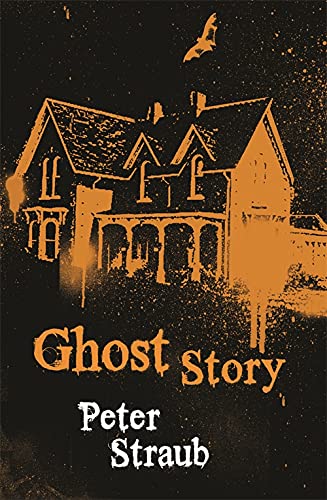In this series, Reading My Own Library, I attempt to read the books I already own. By "read" I mean, "finish", but also "attend to closely". A lot of the books I'm reading now are recent additions to my library, so part of the mission is also to go into the stacks a bit (a lot) and carve away at any stashes that might exist in the farther reaches of my catacombs. By "catacombs" I mean, the books in my garage, in my office, in the back shelves (double stacked) of the lower reaches of shelves behind filing cabinets, in the tomes I've been hoarding for years.
I was asking myself yesterday, "why did I buy all those books so long ago (over a decade ago), by Salman Rushdie?" I've never come even close to finishing a book by Rushdie. The ethos of my current mission to read my own library would stipulate that I at some point finish a Rushdie book. I have several from which to choose after all! With that said, it may take some time for me to actually do the Rushdie. This is a life-long project.
I recently finished Straub's Ghost Story. It's not a straightforward read, but it's also not difficult. I can see the popular appeal, but it's more of a weird story than a ghost story. The influence of Machen is profound, I think, and I'm glad I'd started making my way through the Oxford World's Classics edition of Machen's stories before I came to this Straub title. The baddies are unknowable monsters from another dimension. The monsters take on human form, but they are not supernatural beings. They are more like weird creatures that at times are seen as masses of white, writhing, worms, or as forest animals. The worm bit has that tentacular edge that is truly of the weird.
But Ghost Story was published in the 1970s, making it way ahead of its time, at least in terms of this current resurgence of the weird, aka The New Weird. As I got into this novel I realised how much more interesting a writer Straub is than, say, King. Both are, from what I understand, very popular novelists, and I'm sure (though not that sure) that some of Straub's other output must be a bit more pulpy than this. I am after all starting with Straub's (from what I know) most well-received work, critically speaking.
The form of the text is itself weird, weaving together different timelines, spaces, and dream-image sequences. These are mixed with such artfulness that it becomes impossible to know which one we're in. This puts the novel well beyond anything like what Jackson was doing in The Haunting of Hill House, for example, which is just a straightforward haunted house novel (albeit a very very good one).
All I can say is, I'm proud to have tackled this fat novel without putting it down for any significant length of time. Unlike the other book I'm in now, which after a hiatus of years, I've picked back up again at page 539, namely, He Knew He Was Right by Trollope. It's so easy to read though, so writerly and flowing, even as much or more than Dickens, that I'll have no problem finishing. Already a couple hundred more pages have flown past. With HKHWR soon to be done, I feel like I'll be starting to do justice to 'reading my own library' at last!

